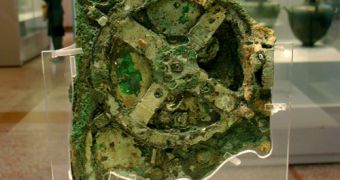More than a century ago, some sponge divers were caught in a storm and took refuge on the Antikythera islet. When the storm passed, they dived again, but instead of sponges, they found the remains of an ancient shipwreck, which held, among other things, an unappealing mechanism that sparked no interest until modern times. It is believed to have been inspired by a similar creation based on the principles of Archimedes, and it mimics the motion of the celestial bodies, as the ancient Greeks knew them.
The nature and origins of the device are yet unknown. The ship was Roman – it may have belonged to general Pompey – and was carrying Greek loot when it sunk, in about 65 BC. The opinions on the location of the Antikythera mechanism, as it was called, are divergent, with some placing it on the island of Rhodos and others in Syracusae, Archimedes' home city. But the device did not actually belong to Archimedes and is not the one Cicero described either. Instead, it was a more complex machinery based on his initial model and laws.
The old device, the first (actually, the only) ancient one discovered that contains gears, scales or pointers, has largely been ignored until the latest decades, when a number of scientists dedicated themselves to its study and recreation. It was set in a wooden box and provided with a handle. Pulling it would move the indicators in order to show the precise location of known celestial bodies (as it was known, such as the Moon or the Sun revolving around the Earth) at any specific moment.
The dials and pointers showed the behavior of the Moon (and its phases), the Sun, the five known planets, a 19-year-long calendar, a precise solar and lunar eclipse predictor (indicating the date and duration) and other events, all achieved by bronze gearwheels. Accurate mathematical ratios helped multiplying the rotation speed of the wheels, also depending on the number of their teeth. There is a video explaining it all better here.

 14 DAY TRIAL //
14 DAY TRIAL //